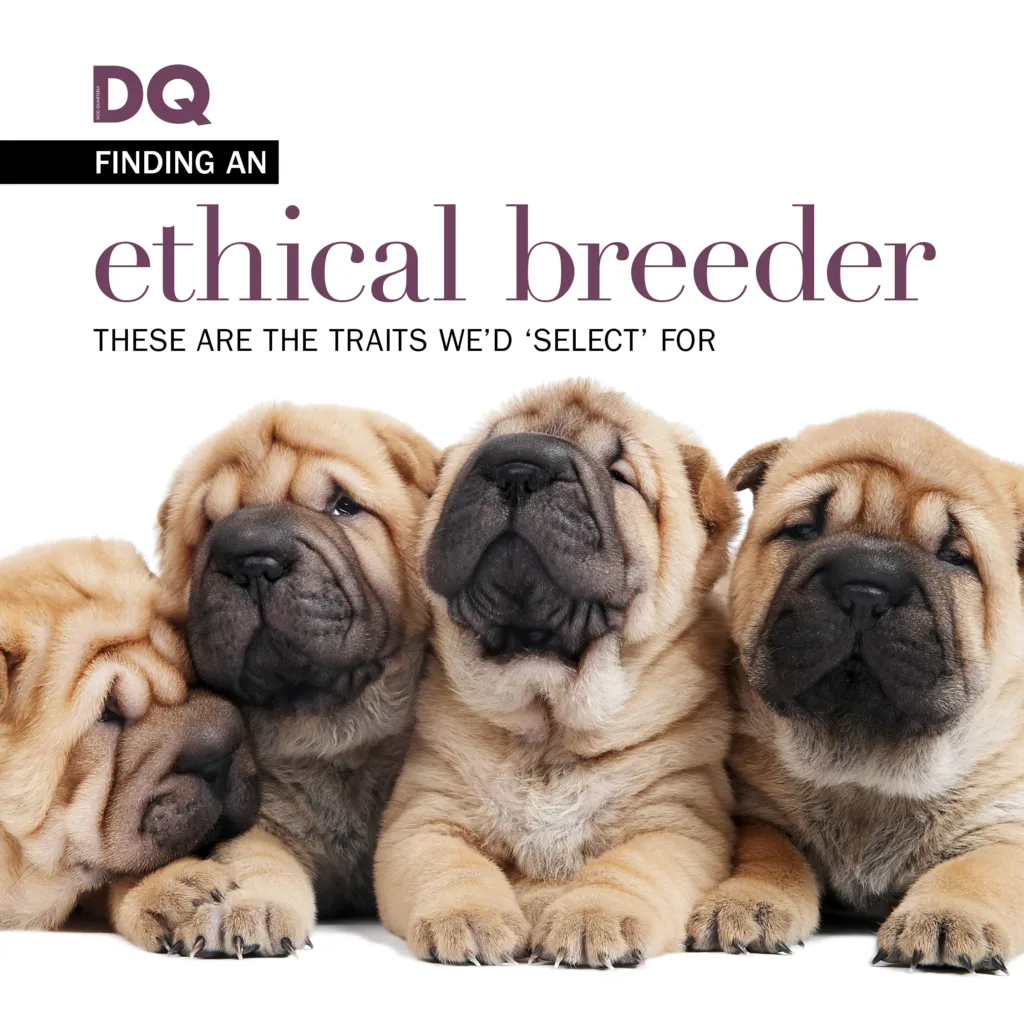An ethical dog breeder prioritises the health, well-being, and future of their dogs above profit or convenience.
Here are the key traits that define an ethical breeder:
- Focus on health
- Genetic testing: Ethical breeders conduct thorough health screenings and genetic testing for breed-specific diseases and conditions, ensuring their dogs are as healthy as possible.
- Health guarantees: Many offer health guarantees for their puppies and are transparent about any genetic issues that could potentially arise.
- Emphasis on socialisation and environment
- Home environment: Puppies are raised in a clean, safe, and loving environment, typically in the breeder’s home. This helps them grow up in a familiar, social setting.
- Early socialisation: They expose puppies to various stimuli, including other people, pets, and household sounds, helping them develop well-rounded temperaments.
- Prioritises breed standards and purposeful breeding
- Knowledge of breed standards: Ethical breeders have a deep understanding of their breed’s physical and behavioural standards and work to maintain these traits responsibly.
- No overbreeding: They carefully plan each litter, spacing out breedings to allow adequate recovery time for the mother and focusing on improving the breed with each generation.
- Transparent and selective in puppy placement
- Rigorous screening for potential owners: Ethical breeders take the time to interview prospective owners, ensuring their puppies go to committed, responsible homes.
- Lifetime commitment: Many ethical breeders require a signed contract stating that the dog should be returned to them if the owner can no longer care for it, guaranteeing the dog’s lifelong well-being.
- Provides ongoing support and education
- Open communication: They offer ongoing support to puppy buyers, answering questions and providing guidance about training, health, and care throughout the dog’s life.
- Follow-up: Ethical breeders often keep in touch with owners, sometimes even requesting updates and photos, showing genuine care for their dogs’ lives.
- Registered and actively involved in dog communities
- Affiliation with breed clubs: Many ethical breeders are registered with reputable kennel clubs or breed-specific organisations, staying informed about breed standards and health research.
- Participation in dog sports or shows: Ethical breeders often participate in shows, trials, or other activities that demonstrate their commitment to maintaining the breed’s integrity and standards.
- Avoids using intermediaries
- Direct contact only: They don’t sell through pet stores or brokers, ensuring they can screen each buyer and build relationships directly.
Final thoughts
In essence, ethical breeders see breeding as a responsibility, not a business. They invest time, resources, and dedication into ensuring each puppy is healthy, well-socialised, and placed in a loving home where he will thrive.


